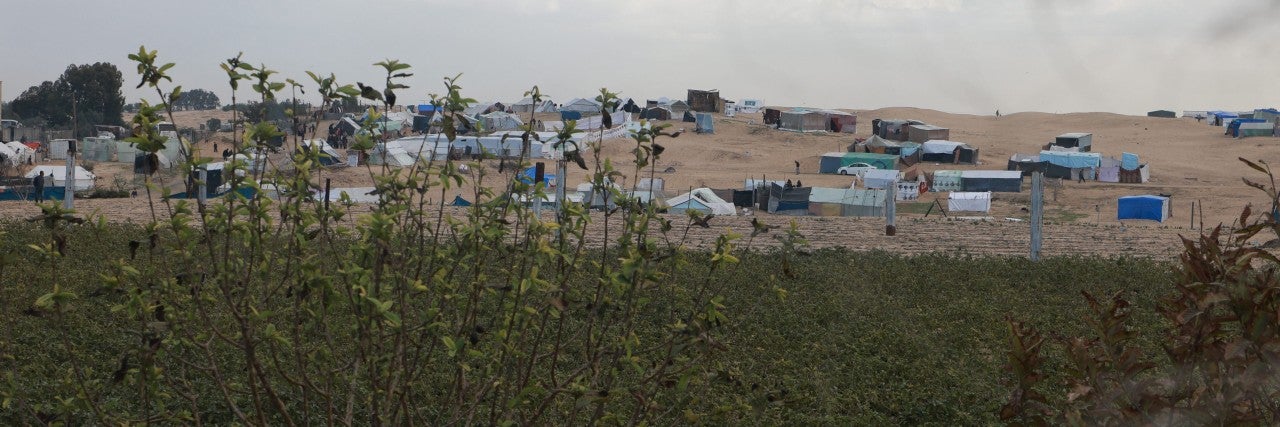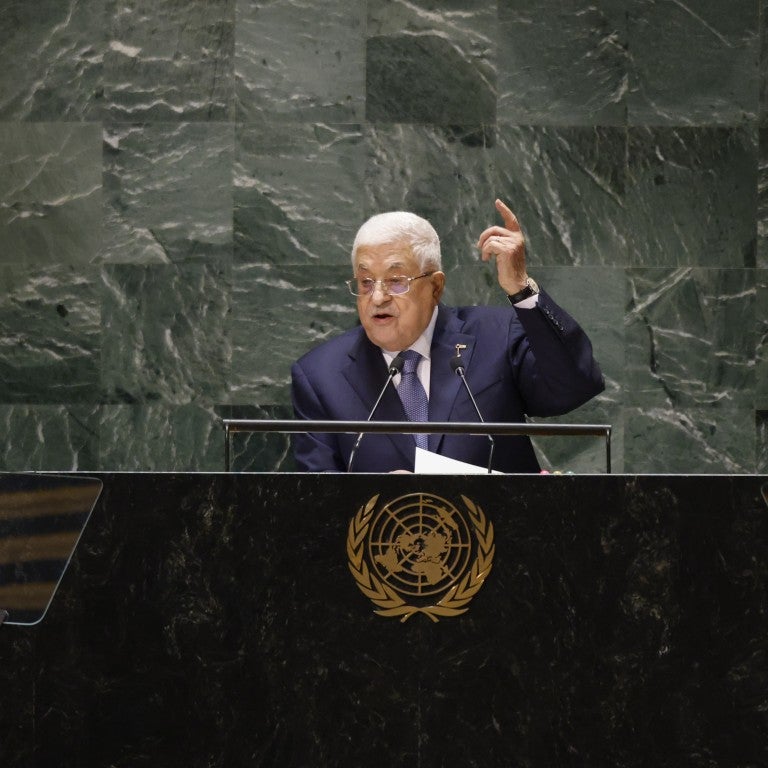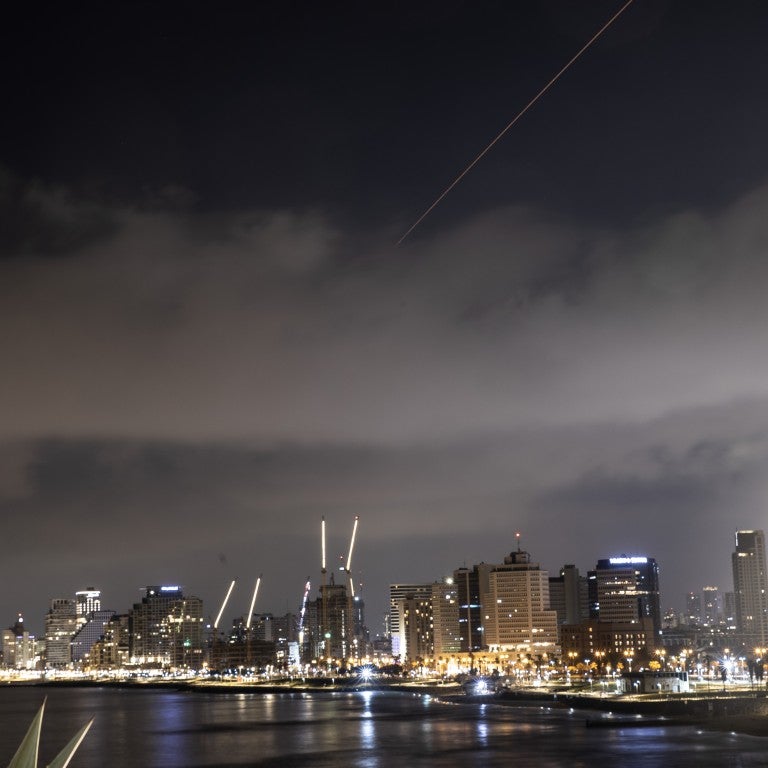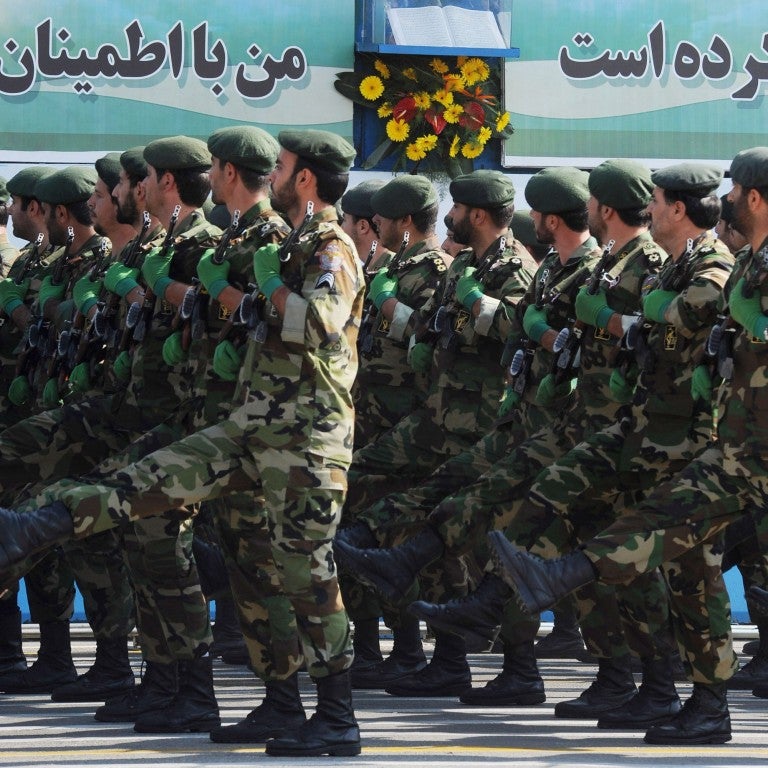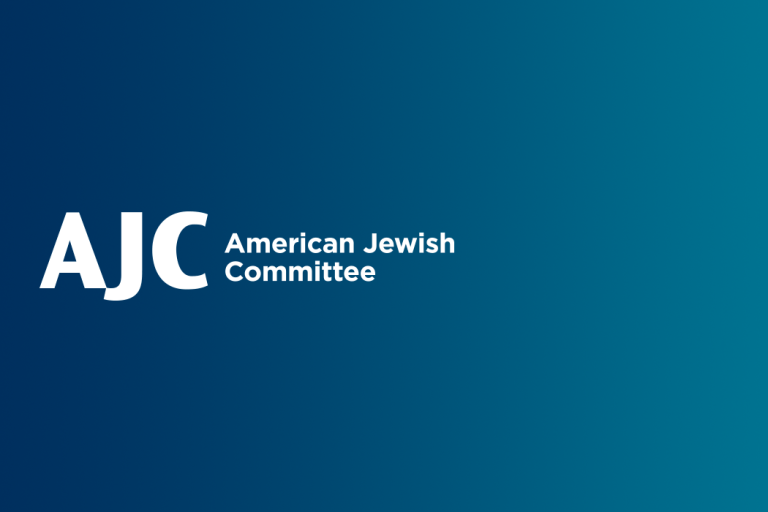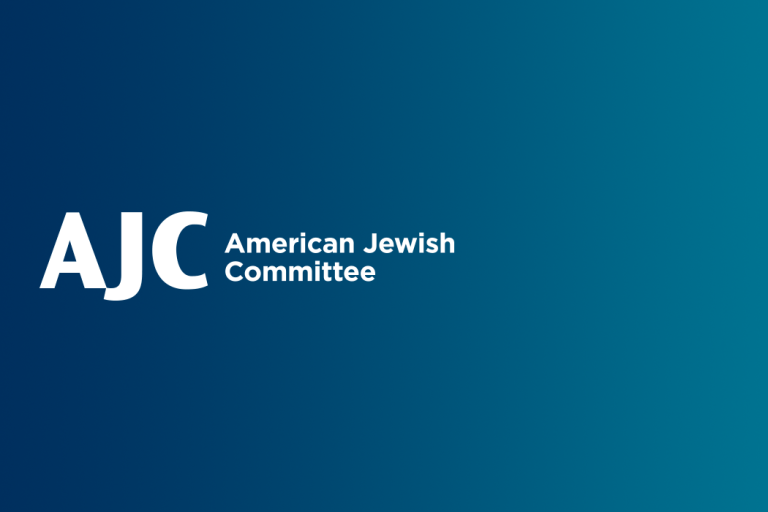May 10, 2024
Israeli Prime Minister Benjamin Netanyahu has declared that Hamas terrorists remaining in the southern Gaza city of Rafah will be the next objective of the war. As long as Hamas operates from Rafah, Israelis are in danger of rocket fire and a reoccurrence of October 7.
The Latest Updates:
Following the May 5 Hamas attack that killed four Israeli soldiers located next to the humanitarian area of Kerem Shalom, Israel has ordered the evacuation of up to 100,000 Palestinian civilians, roughly 10 percent of the total civilian population in Rafah currently, from the eastern neighborhoods of Rafah in southern Gaza. On May 7, Israel Defense Forces took control of the Gazan side of the Rafah Crossing between Egypt and Gaza. Many hoped that this limited operation would pressure Hamas to accept a temporary ceasefire deal, which includes the release of hostages held by the terror group. Israeli forces have killed at least 50 terrorists in this limited operation and uncovered over 10 Hamas tunnels. On May 10, the Israeli security cabinet approved a measured expansion of the limited Rafah operation.
Why is Israel carrying out a limited military operation that targets specific locations in Rafah?
To return the hostages kidnapped on 10/7, prevent Hamas from carrying out another 10/7-style massacre of Israelis, shut down the illegal weapons and people smuggling tunnels between Gaza and Egypt, end the Iran-backed terror group’s influence over Gaza, and put pressure on Hamas to agree to a deal that will release Israeli hostages.
Every country has a moral obligation to not only protect the safety and security of its citizens but to rescue those taken hostage. It is believed that many of the more than 130 hostages, some of whom are feared to be already dead, are being held in Rafah. Many Israeli analysts believe that pressuring Hamas in Rafah could force the terror organization to get serious about negotiating with Israel and releasing its prisoners. In February, Israel carried out a successful and dramatic rescue operation in Rafah that freed two hostages, Fernando Simon Marman, 60, and Luis Har, 70, who were abducted from Kibbutz Nir Yitzhak on October 7.
In addition, Rafah is the last remaining stronghold for Hamas’ military battalions and its leadership. Defeating Hamas’ remaining battalions in Gaza is needed to ensure that the Iran-backed terror group no longer has the ability to murder Israelis. Hamas, which calls for Israel’s destruction in its charter, has repeatedly promised to carry out more 10/7-style massacres against Israel.
Rafah is one of the last strongholds of Hamas, and it is believed that many of its senior commanders, including Hamas chief Yahya Sinwar, are possibly located there. With its leadership still largely intact in Rafah, Hamas could easily use Rafah as a base to reassert control over the entire Gaza Strip if the war were to end prematurely.
A campaign in Rafah is also essential to eliminate Hamas’ and other terrorist groups' underground network of smuggling tunnels between Egypt and Gaza. Shortly after Hamas gained control of the Gaza Strip, throwing out the Palestinian Authority in a bloody coup in 2007, a “tunnel industry” began to thrive under the border between Gaza and Egypt. Hamas has operated most of these tunnels, collecting tolls and trafficking explosives, guns, rockets, and drones. Terrorists also have used the tunnels to go to and from Gaza in order to train in Iran and other countries.
Egypt has previously worked to destroy the tunnels, but smuggling remains a concern. Ridding the area of Hamas and destroying the tunnels once and for all is an Israeli security priority.
How will Israel protect innocent Palestinian civilians in Rafah?
While Israel goes to extraordinary lengths to keep Palestinian civilians out of harm’s way (more on that below), Hamas specifically puts Palestinian civilians in danger. A recent example includes the Iran-backed terror group’s May 6 assault on the humanitarian aid crossing, Hamas launched rockets from a UNRWA school - a clear humanitarian safe zone. Time and again, Hamas uses Palestinians as human shields, purposely driving up the number of innocent Palestinians killed in the war while preserving the lives of the terrorist fighters.
“Israel has implemented more measures to prevent civilian casualties in urban warfare than any other military in the history of war. This includes many measures the U.S. has (or has not) taken in wars and battles but also many measures no military in the world has ever taken,” asserts John Spencer, Chair of Urban Warfare Studies at the Modern War Institute at West Point, a research center dedicated to the study of war and warfare. Read more of Spencer’s expert analysis.
As Israel conducts limited and targeted operations in specific parts of Rafah, it is once again deploying extraordinary steps to ensure Gazans are not in harm’s way in Rafah. For instance, before Israel’s targeted operation in eastern Rafah neighborhoods, hundreds of thousands of leaflets, phone calls, text messages, and social media posts in Arabic were disseminated to ensure the approximately 100,000 Palestinian civilians in these areas were evacuated out of harm’s way to an expanded humanitarian zone in the al-Mawasi and Khan Younis areas of southern Gaza.
The IDF said that the expanded humanitarian zone includes field hospitals and tent camps for displaced Palestinians, while the IDF noted that “there has been a surge of humanitarian aid going into Gaza.”
Previously, IDF spokesman Rear Adm. Daniel Hagari said that moving the Palestinian civilians to designated areas, which would be done in coordination with international actors, was a key part of the IDF’s preparations for any Rafah operation.
What have U.S. leaders said about Israel’s efforts in Rafah?
For over a month, various U.S. government officials have expressed concern about a full-scale ground operation in Rafah, reiterating that there needs to be a credible plan to safeguard Palestinian civilians.
In a CNN interview on May 8, President Biden delineated his “red line” when it comes to Israel and Rafah, saying “I made it clear that if they [the IDF] go into Rafah—they haven't gone in Rafah yet—if they go into Rafah, I'm not supplying the weapons that have been used historically to deal with Rafah, to deal with the cities, that deal with that problem,” referring to his decision last week to pause the delivery of a shipment of a specific type of munition to Israel. In the interview, President Biden clearly said that Israel’s limited and targeted operations in Rafah to date have not crossed his red line. President Biden also added, “We’re going to continue to make sure Israel is secure in terms of Iron Dome and their ability to respond to attacks that came out of the Middle East recently.”
Biden’s comments on possibly not supplying weapons set off a flurry of concern and criticism from lawmakers on both sides of the aisle and from AJC:
AJC CEO Ted Deutch said that Israel’s ability to defeat Hamas - which has long called for Israel’s destruction, which is enshrined in its charter and vowed to carry out additional 10/7-like massacres - should not be impaired.
“President Biden should not take steps that could impair Israel’s ability to prevent Hamas from attacking it again and again — as its leaders have promised,” he said. “The U.S. knows that defeating Hamas is critical to Israel’s long-term security and to defeating the global threat posed by the Iranian regime and its proxies.”
